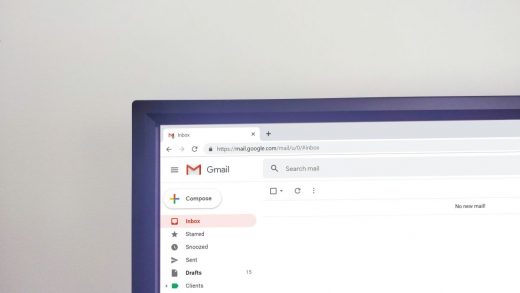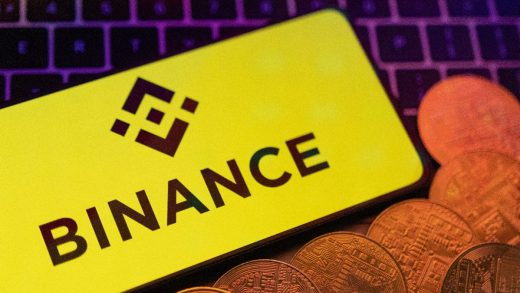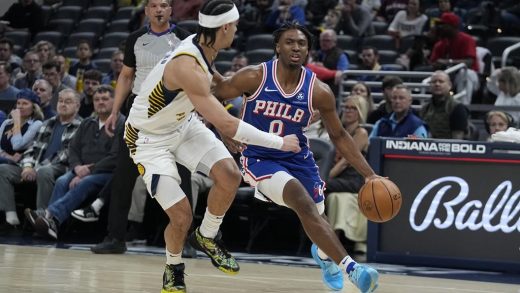:format(webp)/https://www.thestar.com/content/dam/thestar/entertainment/music/2023/01/20/toronto-band-july-talk-explodes-with-new-pandemic-inspired-album-remember-never-before/julytalk_colinmedley_1_.jpg)
Figuring out the essence of July Talk isn’t easy.
The six piece Toronto band — which includes singers Leah Fay Goldstein and Peter Dreimanis, guitarist Ian Docherty, bass player Josh Warburton and drummers Danny Miles and Dani Nash — has made a career of being embroiled in mystique with their energetic Juno Award-winning alt rock songs and often-enigmatic lyrics.
Ten years into a thriving livelihood that has seen them win three Juno Awards, travel the world and become renowned for their thrillingly explosive live shows that feature the unique interaction between vocal principals Goldstein and Dreimanis, July Talk’s latest album “Remember Never Before” — released Friday — finds their music no less cryptic.
Scouring the lyrics of their frantic album opener “After This” (“compensate like there’s still nothing wrong/turns out we were trying all along/we can’t wait until it’s too late to go on”); the funky Afro-pseudo closer “I Am Water” (“you are blood just like a moon/you bring in the flood/yes there are fires and there is death/and there is dying where the fire is met”) or the electronically-pulsed “A Certain Father,” (“said she wanted all of something (you can)/overlooked, he feels forgotten (hear it)/ up the river, screaming profane, he says”) actually, all of the 11 songs present on this energetic collection, leaves me wondering and pondering both about the inspiration and the messages behind these well-crafted tunes.
“It’s funny that you say we’re cryptic, because I worry that we’re too on the nose,” responded Dreimanis, possessor of rock music’s most rugged baritone as he shares the line with Goldstein.
Regardless, the compelling tag-team of Dreimanis and Goldstein seem to be the perfect foils for each other … though not everyone agrees with that assessment.
“What makes us a good foil for each other? It’s a good question — I don’t know,” replied Dreimanis, who grew up in Edmonton and whose band performs two dates at Massey Hall March 10 and 11.
“I feel like you trust your instincts with certain things and performance and collaboration of that sort is something you avoid talking about at all costs with each other. So, it’s something that we’ve just sort of trusted for a decade now and I think we’ve only kind of gotten better as time has gone on, you know?
“But there are some key things that come to mind. First of all, we both grew up in the newsroom on very different sides of the country. Leah’s Dad has worked at a paper for a few decades and my mom has worked at a different paper out in the Prairies for a few decades, and I think we grew up in houses where there wasn’t a lot of small talk. We were constantly conversing with our families on how we felt about pretty large issues from an early age, so we were comfortable in that space, I think. And we were also very comfortable sleeping under the desk of our working parent.”
He said that Goldstein’s experience with the Montreal art scene and opening a few doors for him in Toronto helped set their current roles.
“We approach our art in very different ways,” he added. “I feel like I’m more of an executor and more of a doer — and you’re (Goldstein) more of like a thinker and an observer. So, we push each other pretty hard.”
Goldstein said the artistic relationship between them has them “fill in each other’s blanks.”
“I had a big blank about a bunch of songwriters that were super popular in Alberta — like Emmylou Harris and Gram Parsons. I never really had a Bob Dylan phase or anything like that.
“I think when I met you (Dreimanis), I had never met anyone like you before. You were the only person who was wearing cowboy boots in Toronto in 2010. It was intriguing.”
But she draws the line at the “foils” perception.
“I think at a band level and as two singers, I wouldn’t say that we’re necessarily pushing each other’s buttons,” Goldstein explained. “Not even foils or not even combative: because we have two different voices and we look different, as two people who met and who started a band together with their friends, it’s always interesting to hear people’s interpretations of our band — especially in the early days when it was so common for these tropes of ,‘he’s a whiskey-soaked, beer-slinging, smokes-a-pack-a-day blah blah blahs,’ and she’s ‘ an angelic sex kitten.’
“We’ve had a fun time trying to break some of those moulds and play with them. But the way our band has been perceived says more about people’s own hang-ups and society in general than it does about us.”
Both say the edgy liveliness on “Remember Never Before” is more a reaction to the pandemic and the pent-up energy suppressed during forced periods of inactivity.
“We put out a more reflective record as our third album (2020s “Pray For It”) and everyone in the world had to sit still for a bit,” Dreimanis explained. “We wanted to put the listener in a position of, ‘OK, well, you can move again … what are you going to do about it?’
“We felt the responsibility to inject some joy and hope into whoever would listen. Songs like ‘After This,’ ‘Silent Type’ and ‘When You Stop’ are all putting the listener in the hot seat. ‘Remembering Never Before’ became sort of a thesis as we moved through the making of it, with the idea of, how do we return to something we’ve never experienced yet as people that have learned so much about ourselves?
“As people who have changed so drastically over the last couple of years, how do we find hope and moments of pure astonishment? I think it’s the listener’s responsibility to find that for themselves.”
Ironically, July Talk was one of the more defiant bands when it came to enduring the lockdown: on Aug. 12 and 13, 2020, the band hosted a pair of live concerts at the Stardust Drive-In in Sharon, Ontario, with half the proceeds going to charity.
How did that go?
“We went into a lot of debt,” Goldstein responded.
Dreimanis laughed.
“It went pretty OK, I think,” he admitted. “We ended up making a film about it — it’s in the works, it’ll be coming out soon. But the process is wild, man.
“In hindsight , what I learned about myself in some ways — and what I think we all learned about ourselves — is that we didn’t know how to stop. We didn’t know how to see the forest through the trees at that moment. We created a show with some of the most talented people in Toronto that otherwise would have been off on various multinational tours.
“So, everybody put their heads together — a lot of old friends that hadn’t been able to work together in a bit — and turned it into something special.”
Dreimanis said the experience was memorable for more than a few.
“As we return to the road, there’s more than one person who comes up to us at the merch table close to tears and says, ‘That was like a moment for me in the pandemic’,” he asserted. “It’s encouraging to know that that concert was needed by a lot of people at that time and that it filled a void for them in their homes; or for the folks that came out in their cars and watched the feed live on the big drive-in screen.
While a camera is always a close July Talk companion, Dreimanis says the band stops short of labelling itself a performance art collective.
“We’ve been taught by our peers to not put ourselves in boxes or figure out what the hell we’re doing,” he insisted.
“It’s more, just, what interests us and excites us as a group of people. The band was formed within a creative team and it felt like July Talk was going to be the best way that we could get our ideas out in a cohesive manner.
“I also look up to artists like (David) Bowie and P.J .Harvey and people who embrace the ‘now.’ I’m not really interested in artists that have their feet firmly planted in the sand of their heyday and don’t change.”
As such, Dreimanis said “Remember Never Before” is “an exercise in accessing our primal instincts.”
“We wanted to know the record that our bodies wanted to make, rather than our minds,” he continued. “And we wanted to make a record that felt instinctual and intuitive. We didn’t want to hear some perfectly curated thing: we were very much more interested in, OK, we’re six immensely connected friends. We’re so tight and we know each other so well, how do we capitalize on this and how do we capture it?”
As intense as the July Talk world seems to be, it’s obvious that they can’t go at this pace 24/7.
So how do they unwind?
“I go into my world and I try and like sort out my s–t and heal,” said Goldstein. “That’s a beautiful thing about being in a band: you get to throw a tantrum on stage every night and you get to process things through songwriting. And you get to watch the effect that writing something personal and how it becomes universal and relatable when you set it to music and play it in front of people.”
Edmonton Oilers fan Dreimanis said for him, it’s reconnecting with family.
“We’re like a friendship and family first type of group,” he noted. “The first thing we do is we go see our families and that just doesn’t mean our immediate family: we’ve been lucky enough to call this city home for a while and that can mean other artists that we’ve toured with; it could mean crew that maybe we’ve toured with for many years and don’t anymore.
“I think we’re just like all about reconnecting and taking walks and falling back in love with this city we call home. I wasn’t born here, but July Talk is inarguably a Toronto band and I think some of our videos show that a little too much. There’s a bit of a love affair happening with this city and there’s a really beautiful process whenever we come home of reconnecting with it.”
JOIN THE CONVERSATION


